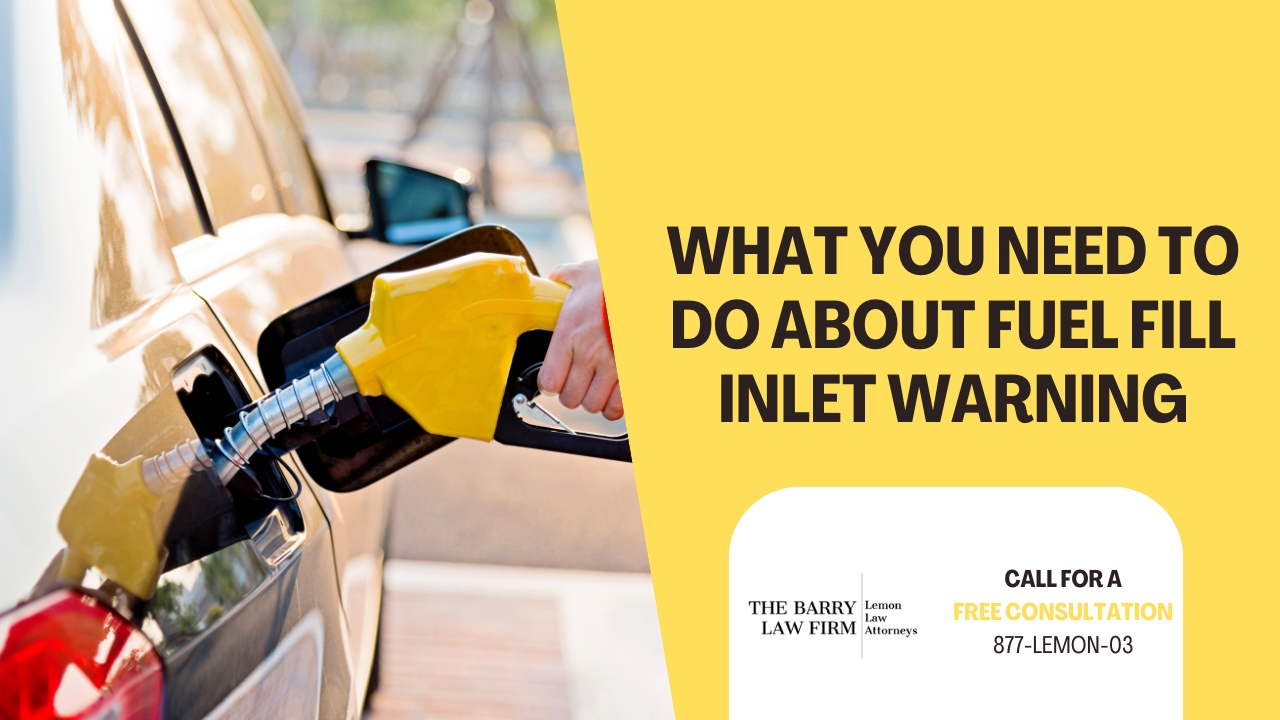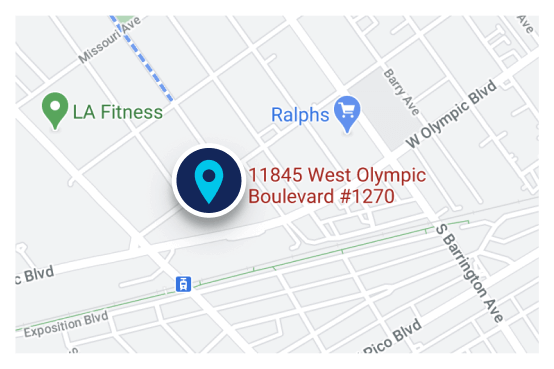
By one count, there are well over 100 different dashboard warning lights in use by car manufacturers. Some warning lights, such as a check engine light, require immediate attention, while others can wait. Do you know what they mean when they appear?
One of the less obvious but more useful dashboard warnings to understand is the check fuel inlet warning light. The warning light could be alerting you to a problem as simple as a loose fuel cap or a more complicated issue such as a vacuum pressure leak in the fuel system. Either way, it’s not a warning light that you should ignore.
If your automobile has a fuel system leak or other warranty issue that has not been fixed in a reasonable number of attempts, you may be entitled to pursue a Lemon Law claim and demand a refund or a replacement vehicle.
What Are The Possible Causes of ‘Check Fuel Fill Inlet’?
First, your vehicle’s fuel fill inlet is the opening where you insert the gas hose nozzle and add fuel at the gas station. We’re looking at the gas cap and the inlet pipe that connects the inlet to the gas tank.
What could go wrong with your car’s fuel fill inlet? Let’s start at the top:
Fuel Cap
- Is your fuel cap missing? Most are connected to the vehicle these days. You may have forgotten to put it on the last time you filled up. A loose gas cap or missing fuel cap is an easy fix to a check fuel fill inlet warning light.
- Is your fuel cap loose or too tight? A car’s fuel cap is made to seal the opening so gas in the tank and inlet pipe flows and burns cleanly. A seal keeps out air, rainwater, dirt, and dust. Maybe you didn’t get it on all the way the last time you stopped to get gas. If the seal is damaged, which can happen if you over-tighten the cap, you may need a new fuel cap. Get one at the dealership or an auto parts store. Look at the package to make sure it’s made to fit your car.
Fuel Fill Inlet
- Is the fuel fill inlet dirty? Some vehicles have a capless gas tank. Instead of a fuel fill inlet cap, there’s a spring-loaded fuel door lid you depress to open and insert the fuel pump nozzle. Any build-up of debris here around the fuel fill inlet can be cleaned with a moist rag or some compressed air and a shop vac. An accumulation of debris around the fuel fill inlet could indicate a clogged fuel filter in the car’s fuel fill system. It’s a good idea to check the area around the fuel fill inlet regularly for any dirt or debris.
- Is the fuel fill inlet damaged? Further along the fuel fill inlet, there may be damage, such as cracks and dents, which can cause leaks and trigger the warning. This is rare compared to other issues that will result in a dashboard warning. But it can happen. You will need professional help from an auto mechanic with the following repairs.
The Evaporative Emission Control System (EVAP) Leakage
- Are fuel vapors leaking? A car’s evaporative emissions control system – EVAP system – captures gasoline (or diesel) vapors and directs them into the engine to be burned. EVAP systems, which consist of hoses, valves, and filters, are required in all cars and trucks. If it’s an EVAP leak or similar issue, your dash should display some on-board diagnostic codes, which provide more information about the problem. For most people, that means a trip to the dealership or local mechanic. The mechanic will use an OBD-II code scanner to interpret the code. It could be a leak in a hose, a faulty fuel fill inlet, a malfunction with a purge valve, a bad fuel tank pressure sensor, or even a rusty fuel filler pipe. The precise location of the leak can be difficult to determine.
Other Sensor Issues
- Could your car’s sensors be faulty? The check fuel inlet light or check engine light may also appear if the inlet or the fuel line is clogged or if there is a problem with the fuel pump or the sensors that detect the level of fuel in the tank. There’s also the possibility of faulty sensors. To understand what is causing the warning light, it’s important to get a professional diagnosis of what could be wrong with your car’s fuel system.
When to Contact a Lemon Law Lawyer in California
In California, if you have taken your car in to be repaired a reasonable number of times and the issue is not fixed or your car spends more than 30 days in the shop for a repair that is under warranty (the 30 days do not have to be consecutive) and cannot be fixed, then you should contact a Lemon Law lawyer.
A Lemon Law lawyer with The Barry Law Firm can help you understand whether your warranty repair issue entitles you to pursue a claim against the vehicle manufacturer under California’s Lemon Law. With a Lemon Law claim, you would seek to compel the manufacturer to replace your defective automobile, buy back a lemon vehicle, or refund the money you have spent on it. The Barry Law Firm can help you:
- Sue the manufacturer. If the car manufacturer does not refund your costs, your next step is to file a Lemon Law lawsuit. Typically, a lawsuit asserts that the car manufacturer, through its affiliated dealership, was unable to repair a warranted defect in a reasonable number of repair attempts and should provide you with a monetary settlement or a refund of your car’s purchase price plus any money you’ve spent on repairs. In fact, under California Lemon Law, manufacturers must pay legal fees and any other costs incurred by consumers whose cases prevail in court. And at The Barry Law Firm we will never charge you a fee, no matter what.
- Negotiate a settlement or go to court. Lemon Law cases can usually be settled. As your Lemon Law attorneys, The Barry Law Firm would negotiate aggressively for the manufacturer of your vehicle to make you financially whole. Most automotive manufacturers don’t want to be accused in open court of producing defective motor vehicles. If your claim goes to court, we will present a persuasive case on your behalf.
Contact Our California Lemon Law Attorneys
The Barry Law Firm focuses its legal practice solely on California Lemon Law claims and can help you demand compensation for the financial losses you have suffered because of a defective vehicle. As soon as you realize your vehicle has been at the dealership for more than 30 days for repairs under warranty that have not been accomplished, you should speak to one of our Lemon Law attorneys.
Call us at 424-688-9516 or reach out online for your FREE consultation. All attorney fees and costs are paid directly by the manufacturer or dealer and never out of your recovery. Contact us today!



